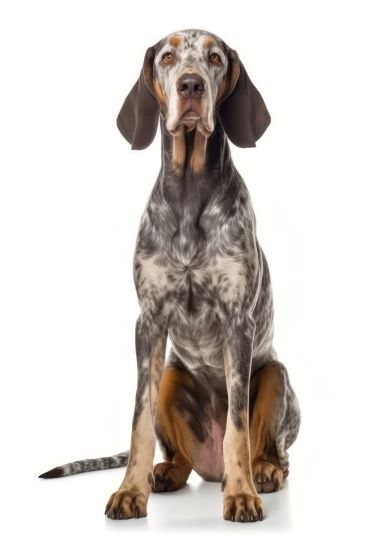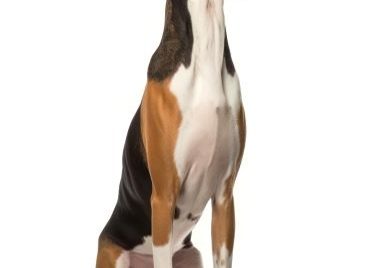Bluetick Coonhound Traits & Characteristics
Introduction to the Bluetick Coonhound
A Bluetick Coonhound, huh? I must say, you’ve got quite the taste in dog breeds! I’ve had a long-standing fascination with these big, friendly pooches. They’re a unique blend of gentleness, strength, and tenacity, with a beautiful blue-speckled coat to boot!
History of the Bluetick Coonhound
But where did these magnificent creatures come from? Well, the Bluetick Coonhound’s roots trace back to the United States, specifically to the Louisiana and Tennessee regions. Bred from the Bleu de Gascogne French hounds and English Foxhounds, they were initially used for hunting due to their exceptional scenting abilities.
General Traits and Characteristics
Physical Characteristics
Physically, they’re quite the sight. Standing at 21-27 inches tall and weighing between 45-80 pounds, these dogs have a broad, domed skull, thin, low-hanging ears, and a muscular, slightly arched neck. And then there’s their stunning coat, a dark blue, densely mottled body color with various black spots.
Personality Traits
On the personality side, Bluetick Coonhounds are intelligent, determined, and good-natured dogs. They’re known for their courage and tenacity in the field, yet they’re also friendly and happy dogs at home, making them fantastic companions.
Caring for a Bluetick Coonhound
Exercise Needs
As a high-energy breed, Bluetick Coonhounds need a fair amount of exercise. Long walks, playtime in the backyard, or regular hunting trips will keep them content. Remember, a tired hound is a happy hound!
Dietary Requirements
Nutrition-wise, these dogs require a well-balanced diet to maintain their energy levels. High-quality dog food, with a good balance of proteins, carbohydrates, and fats, is essential.
Grooming Tips
Grooming is relatively low-maintenance. Their short, thick coat needs a weekly brush to keep it healthy. Regular ear checks are crucial too, given their long, pendulous ears prone to infection.
Health Concerns
Like any breed, the Bluetick Coonhound has a few common health issues, such as hip dysplasia and a tendency towards obesity. Regular vet check-ups will help catch any issues early.
Training a Bluetick Coonhound
Early Socialization
Training these dogs can be a joy, given their intelligent and eager-to-please nature. Start with early socialization – introduce them to a variety of people, animals, and experiences.
Obedience Training
As for obedience training, be patient, consistent, and use positive reinforcement. Their stubborn streak may test your patience, but remember, every challenge is a learning opportunity!
The Bluetick Coonhound as a Family Pet
Are they good family pets? Absolutely! Bluetick Coonhounds are known for their patience and gentleness with children. They also get along with other dogs, given proper socialization. Their loyalty and protective nature make them excellent family companions.
Conclusion
So there you have it. The Bluetick Coonhound – a dog of grace, power, and a whole lot of heart. They’re more than just pets; they’re companions, they’re family. If you’re up for the task, this hound will reward you with a lifetime of loyalty and love.
FAQ
- How long do Bluetick Coonhounds live?
Bluetick Coonhounds have a typical lifespan of 10-12 years. - Are Bluetick Coonhounds good with cats?
With early socialization, they can coexist peacefully with cats. - How often should I groom my Bluetick Coonhound?
A weekly brush is generally enough to keep their coat healthy. - What is the Bluetick Coonhound’s exercise requirement?
They need at least an hour of vigorous exercise each day. - Can Bluetick Coonhounds live in apartments?
Given their size and energy level, they’re better suited to homes with yards.




